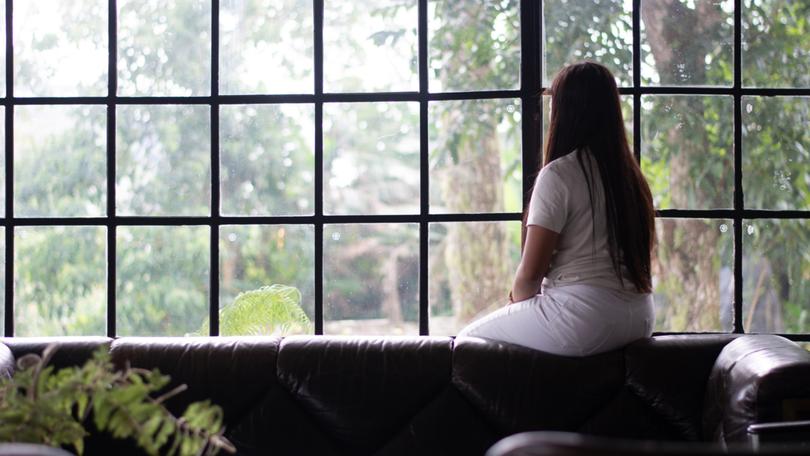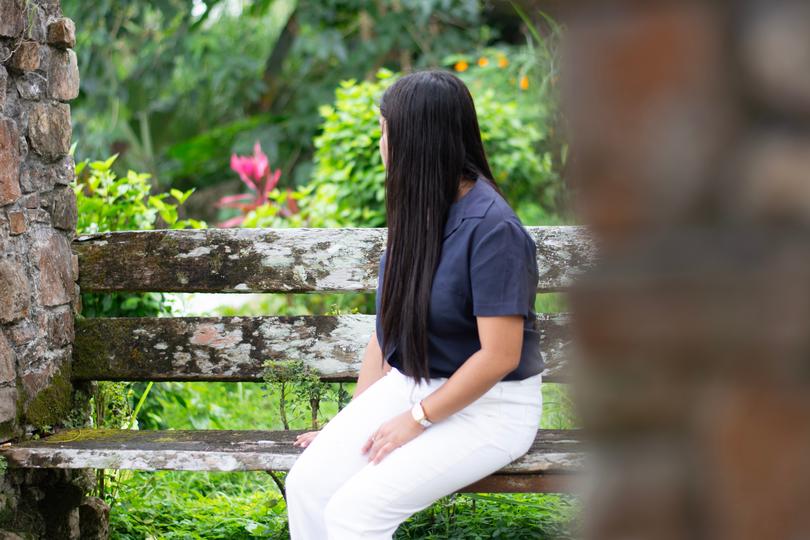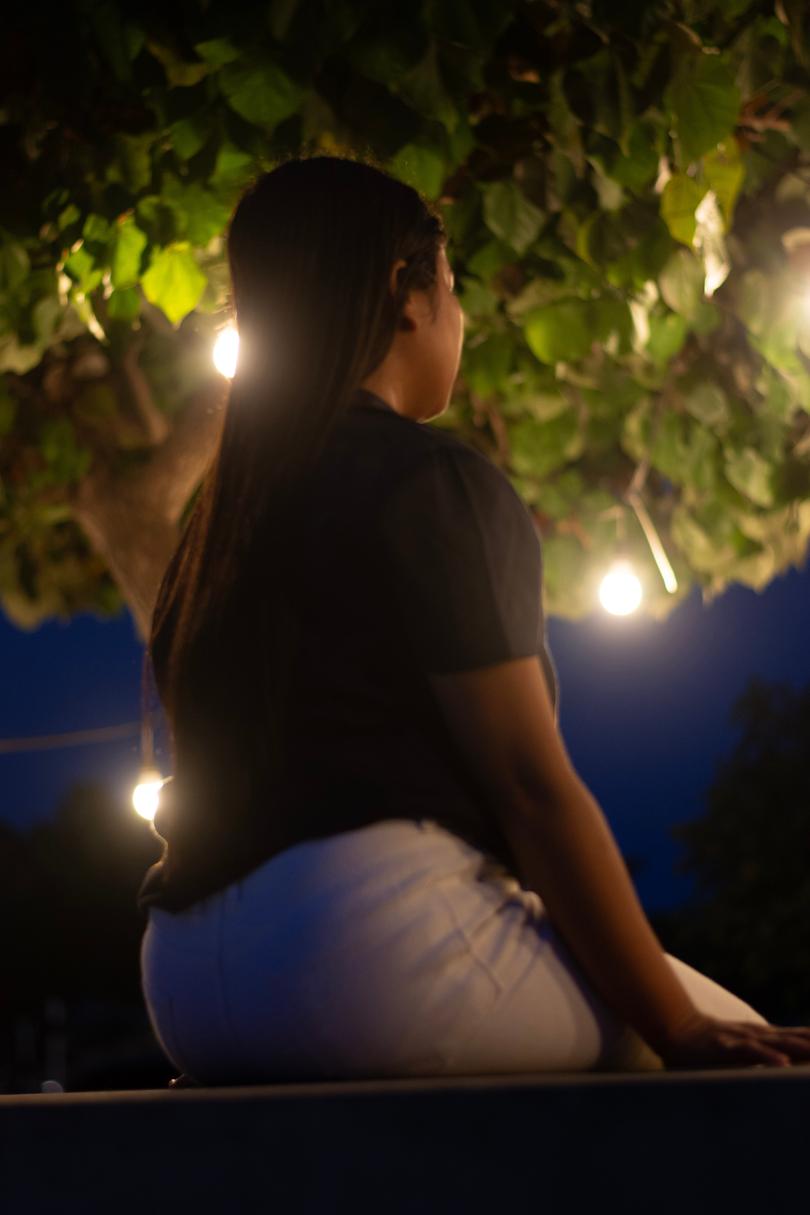Australian men likely among the vile foreign predators who paid to watch Briella’s live-streamed sexual abuse
When Briella’s aunt took a picture of her at the beach, she could not have conceived her close relative would forward that happy snap to foreign men, possibly including Australians, to sexually exploit her.

EXCLUSIVE
When Briella’s aunt took a picture of her at the beach, the innocent girl could not have conceived that a close and trusted relative would forward that happy snap to foreign men, including Australians, to sexually exploit her.
But following that fun family gathering, Briella’s paternal aunt began cybersex trafficking the little girl, her even smaller sisters and their cousins, from their home in the Philippine province of Cebu.
Sign up to The Nightly's newsletters.
Get the first look at the digital newspaper, curated daily stories and breaking headlines delivered to your inbox.
By continuing you agree to our Terms and Privacy Policy.Speaking exclusively to The Nightly this week, Briella — a pseudonym — said the betrayal “changed the course of our lives”.
“As the eldest of four sisters, I felt a deep responsibility for my siblings, and witnessing their pain was incredibly difficult,” she said.
“I had no idea that she actually sent it to a foreigner.
“My sister actually saw the foreigner on the cell phone and said ‘hi’ because my aunt told her ‘you need to say hi to the foreigner’.”

For years, Briella’s aunt took advantage of vulnerable children and the country’s booming cybersex industry by facilitating distant live-streamed child sex abuse via social media platforms including Skype and Facebook Messenger.
This online sexual abuse and exploitation of children (OSAEC) involves kids being sexually violated, in real-time, via a video call for paying perpetrators, who view the vile crimes from the comfort and privacy of their homes in western nations including Australia.
Another adult — who is physically present with the child — facilitates the abuse, which is usually live-streamed from developing countries like the Philippines.
Facilitators can be anyone who has access to children, including parents, relatives and neighbours.
In Briella’s case, the facilitator was her aunt.
Briella’s social worker, from the International Justice Mission, told The Nightly Briella’s aunt had many customers from around the world.

“She had a lot of foreign friends and customers . . . Australians, Americans, Canadians,” she said.
“International law enforcement had been looking for her . . . for a very long time they had been investigating her.
“I think it took them three years to locate her.”
The Philippines is a hot spot for online child sexual exploitation and — shamefully — Australia is in the top three countries for consuming live-streamed child sexual abuse from the Philippines.
The Philippine National Police’s Women and Children Protection Centre (WCPC) and the IJM — a global organisation that protects people in poverty from violence — spent years trying to identify Briella’s facilitator and victims after receiving a tip off from an international partner.
But, in addition to abuse rarely being downloaded or stored, Briella’s aunt covered her tracks.
“For me, she used different laptops, so she borrowed devices,” Briella said.
“She moved from one place to another.
“She used Skype and Facebook Messenger.”
Eventually, in June 2018, police identified Briella’s aunt and a police operation — led by members of the PNP’s Anti-Cybercrime Group — was launched in Cordova.
During the raid, authorities caught the sex trafficker instructing two victims to perform explicit acts that she was live-streaming for paying predators overseas, according to local media reports.
“We were actually neighbours, so when I actually saw her, she was in handcuffs,” Briella said.
“Before that happened, I heard some voices, police shouting, ‘Who is this? Who is this?’
“The police looked at me at the window and said, ‘what is your name?’
“I said ‘I’m Briella’
“He said ‘are you sure you’re Briella? You have the same face as the girl in the picture’.”
IJM and government social workers escorted the children to vans with scarves covering their faces to shield them from neighbours, onlookers and media.
They encouraged Briella, who was by this time 14, to come with them.
“For me, at that time, I felt shock. I didn’t know what was happening,” she said.
“They put a cover over my head (because) there was some media there who knew it was a rescue operation.
“I didn’t have any idea that my sisters were already in the van.”
Briella’s sisters — then aged between 4 and 12 — had already been whisked to safety.
Their abusers’ two sons, aged 2 and 5, were also removed because they were considered “at-risk children”.
“When I get inside the van I see my cousins, my one neighbour and my two sisters,” Briella said.
“I ask them ‘why are you here?’
“They were actually crying and asking for help.”
The traumatised children were referred to a shelter for protective custody and care where they were safe for the first time in their young lives.
“When my sisters and I were first rescued, I thought we’d be going home right away,” Briella said.
“But as we arrived at the shelter, I remember looking out the window and seeing many children gathered there, watching us.
“For me it was very challenging because I see some different children, different cases, and I see they’re actually struggling also.”
Briella’s aunt, 23, was arrested that day and charged with attempted trafficking and aiding or abetting in the commission of cybercrime. She quickly pleaded guilty.
The day of her conviction, Briella and her fellow victims saw their abuser, for the first and last time since her arrest, when they attended a “conciliatory meeting” with her in the judge’s office in their desperate bid for some elusive “closure”.
It was a traumatic scene in which the children, still terrified of their aunt, were all crying. One cowered in a corner while another hid behind the prosecutor. Briella clung to her IJM social worker.
“The only thing she said is like ‘please forgive me for what I have done to you. It is not intentional’,” Briella recalled.
“That is the only thing I remember.
“I don’t want to see her ever again.”
The woman was sentenced to 21 years in prison.
After more than a year living at the shelter — a safe haven where the children could recover, rebuild trust and receive targeted therapy — Briella, along with her sisters and their cousins, were able to return to their community, reintegrate and go back to school.
Briella is now trying to build a better life for herself and her son.
The 21-year-old is studying hospitality management at university and dreams of opening her own restaurant.
She has also become an advocate for other survivors like herself and launched the Philippine Survivor Network.
“For me, since I actually started advocating in the Philippines, it’s been a good thing for me because I have a passion,” she said.
“I need to share my story and advocate because I need to show those children who are still suffering in silence.
“It’s been empowering.”
The young mum continues to receive ongoing support from the IJM, which provides legal and logistical help to local police as well as aftercare to victim survivors.
The IJM’s Scale of Harm study, published last year, revealed the average age of trafficked victims at the time of law enforcement intervention is just 11 years old.
However, the IJM has supported Philippine police in rescuing victims younger than one year of age.
The report also reveals that children are usually abused, on average, for two years but sometimes for up to four years, causing them severe psychological distress.
The IJM also works with international partners, including the Australian Federal Police, to fight OSAEC.
Combating child exploitation, here and overseas, is a key priority for the AFP and its Australian Centre to Counter Child Exploitation.
In the past week alone, two Northern Territory men have been charged with accessing and possessing child abuse material involving children overseas.
Last week, the NT Joint Anti Child Exploitation Team charged a 37-year-old man with three counts of possessing child abuse material and three counts of using a carriage service to access child abuse material.
That investigation began when the NT JACET received an AFP intelligence report on a person based in Australia sending money to a known child exploitation facilitator in the Philippines.
AFP investigators allegedly linked the 37-year-old man to the illegal online activity.
In a second, separate and unrelated matter, the ACCCE received a report in October from an online dating website about a man allegedly soliciting online child abuse material.
This report allegedly related to someone attempting to procure child abuse material of a mother and young child in a foreign country.
The NT JACET executed a search warrant at the home of a 66-year-old man last week.
He was then charged with one count of grooming person to make it easier to engage in sexual activity with a child outside Australia, one count of accessing child abuse material and two counts of possessing child abuse material.
The maximum penalty for each of the offences is 15 years’ imprisonment.
Both men are due back in the Darwin Local Court this week.
AFP Superintendent Gregory Davis said the AFP, together with its state and territory law enforcement partners, remain committed to protecting children.
“Anyone who views this material is committing a crime,’’ Supt. Gregory Davis said.
“Our message to online offenders has not changed. If you procure, access and transmit child abuse material, you will be found, arrested and prosecuted.”
NT Police detective acting Sergeant Duane Commander said anyone who views this abhorrent material is committing a serious crime and “will face the full force of the law”.
REPORT CHILD SEXUAL ABUSE
Members of the public who have information about people involved in child abuse are urged to contact the ACCCE at www.accce.gov.au/report.
If you know abuse is happening right now or a child is at risk, call police immediately on 000.

